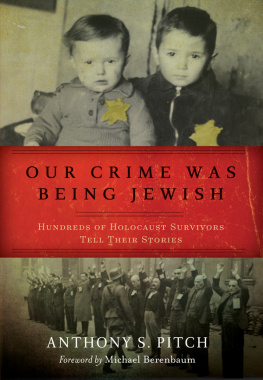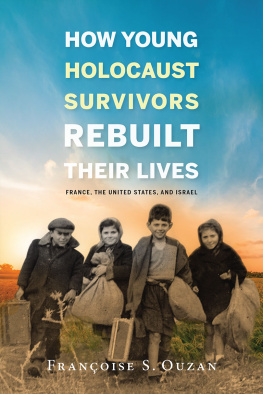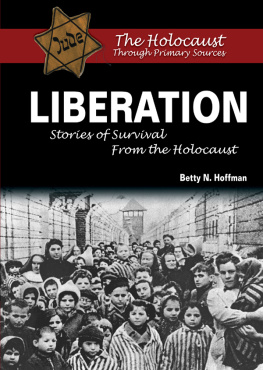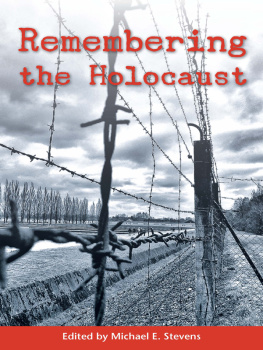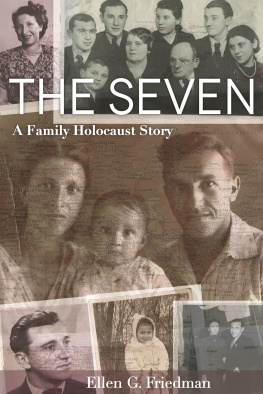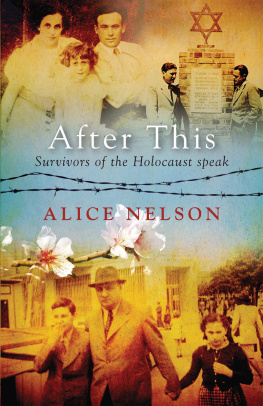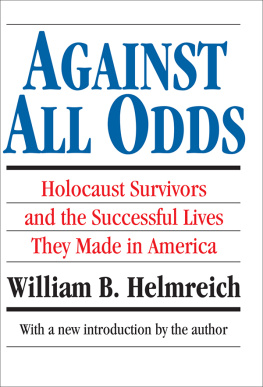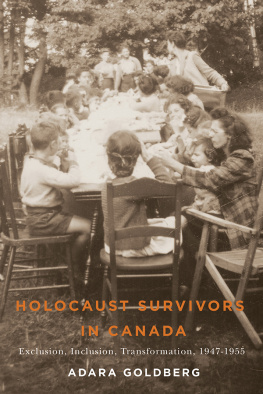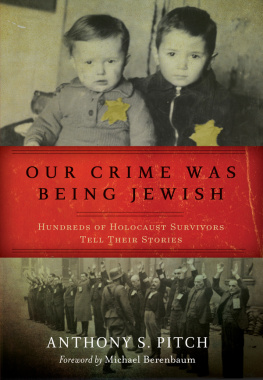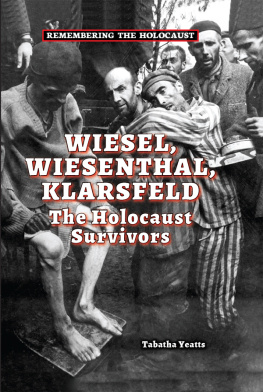Copyright 2015 by Anthony S. Pitch
All rights reserved. No part of this book may be reproduced in any manner without the express written consent of the publisher, except in the case of brief excerpts in critical reviews or articles. All inquiries should be addressed to Skyhorse Publishing, 307 West 36th Street, 11th Floor, New York, NY 10018.
Skyhorse Publishing books may be purchased in bulk at special discounts for sales promotion, corporate gifts, fund-raising, or educational purposes. Special editions can also be created to specifications. For details, contact the Special Sales Department, Skyhorse Publishing, 307 West 36th Street, 11th Floor, New York, NY 10018 or .
Skyhorse and Skyhorse Publishing are registered trademarks of Skyhorse Publishing, Inc., a Delaware corporation.
Visit our website at www.skyhorsepublishing.com.
10 9 8 7 6 5 4 3 2 1
Library of Congress Cataloging-in-Publication Data is available on file.
Cover design by Laura Klynstra
ISBN: 978-1-63220-654-1
Ebook ISBN: 978-1-63220-854-5
Printed in the United States of America
Throughout the text, the acronym USHMM stands for the United States Holocaust Memorial Museum in Washington, DC. The RG tags indicate the record group number of the statements. The views or opinions expressed in this book, and the context in which the text and images are used, do not necessarily reflect the views or policy of, nor imply approval or endorsement by, the United States Holocaust Memorial Museum. Readers are urged to visit this museum for a greater visual insight into the Holocaust or to visit its website, http://www.ushmm.org/.
In loving memory of my parents, Chummy and Ivor, and my brothers, Warwick and Leonard,
and
for my grandchildren, Kayla, Maya, and Eli.
Learn from the suffering and wisdom of survivors and the triumphant heritage of endurance.
FOREWORD

W HEN CONTEMPLATING HOW TO SHAPE the final exhibit at the United States Holocaust Memorial Museum, in essence how to transition between the world of the Holocaust and our world, we felt compelled to hear the voices of those who had made the transition themselves, the survivors who were denizens of that world of horror and evil, yet who emerged to live in our world. We were mindful of Elie Wiesels admonition, Only those who were there really know. Yet we had to disregard the second part of his warning, and those who were there can never tell.
So we shaped a final film, Testimony , that was linked by disparate, seemingly unrelated testimonies of survivors, and fragments of memories. No single story told the whole; no survivor spoke for anyone other than his or her self and his or her own experience. But the accumulated testimonies, person by person, story by story, gave full-throated voice to the entirety of the events we now call the Holocaust. They successfully communicate to the visitors what it was like to be in the inner chambers of hell, in its anguish and pain, in its courage and fortitude, in its humiliation and degradation, but also in its humanity, however weak or compromised, however corrupt or decent that may be.
Anthony Pitch concludes his preface to Our Crime Was Being Jewish with the following words,... There is no chronological order to the stories, as a reflection of the survivors shattered lives. Likewise there is no index, because many who should have been included were silenced by murder.
Pay attention to Pitchs subtle, deliberate method; the book is fragmented, deliberately so. He has refused to impose an order of the fragments of testimonies. Pitch does not use chronology as his organizing principle, nor does he employ geographic groupings of experiences, region by region. Insights build on insights and the compilerone can neither quite call him an author nor an editor, yet he surely is bothadds not a word to the testimonies that have been given. He presumes that fragment after fragment will not yield a fragmented understanding, but something far more integrated.
And he is right.
Some readers may be frustrated for they crave organization and order, but Pitch has transmitted the chaos and disorder of the manner in which the people who experienced life and death in the ghettos and forests, in the death camps and partisan units, went on living and suffering as those around them were murdered.
We experience so much and yet Pitch resists labels and ordering. One can read of spiritual resistance as Norbert Wollheim recalls asking his fellow inmate standing on the roll call how he could pray, only to be struck by his reply that he was thanking God that He did not make him like the murderers on site. But Wollheims testimony is not joined by other such testimonies. It stands alone, as others had different experiences. The outsider may seek to join them together, to impose categories, to insist on labels.
One can sense the anguish of what the great literary historian Lawrence Langer calls choiceless choices, as Cecilie Klein-Pollack recounts her arrival at Auschwitz. A prisoner conveyed vital information, life and death information: The old, the young, and parents with children were being sent to die, automatically, unalterably. Her mother absorbed this information and acted quickly, boldly. She asked for her grandchild, telling her daughter that old women would be treated better if they had young children. And when sent off with her young grandson to certain death, she admonished Cecilie, Take care of your sister, who she knew would be shattered by the loss.
Pitch presents the testimony. He offers no commentary and he expectsdemandsthat his reader understand all that is being said and will find the necessary commentary within the persons own soul.
One reads of the thin reed that separated those who had the capacity to go on with life, knowing full well that tomorrow would be worse than today, that more suffering and humiliation was in store for them, and those who, facing the very same reality, succumbed in body or spirit, or in both, and knowingly or unknowingly gave up.
Reading this book recalled for me the clich that the devil is in the details. Because Pitch presents so many different testimonies, which offer the most specific details on life and death, loss and destruction, we, his readers, become intimate with the devilfor some, too uncomfortably intimate.
Pitch has sensitively and oh so wisely chosen fragments of testimonies primarily from the vast collection of oral histories available at the United States Holocaust Memorial Museum. From time to time he adds testimonies from other sources, and every once in a while from a book or a document. He has stayed with the testimonies of the victims and their liberators; we see their killers and tormentors almost exclusively through the eyes of those they victimized, not from their memoirs or documents and only rarely through their post-war testimony.
I too have probed the archives and read the books that Pitch has devoured. I am even familiar with the people whose testimonies he quotes, and thus I am all the more impressed not only by his research, but by his exquisite, excruciating taste. He has chosen so very well. Readers should be grateful.
Read the words of those who were there. They really do know something that even those of us who draw close to the gates of this inferno cannot fully know. You cannot but agree with Wiesel, and yet you must also disagree because they do tell us so much if only we are willing to listen. I trust their words and I have come to trust Pitchs choices.

